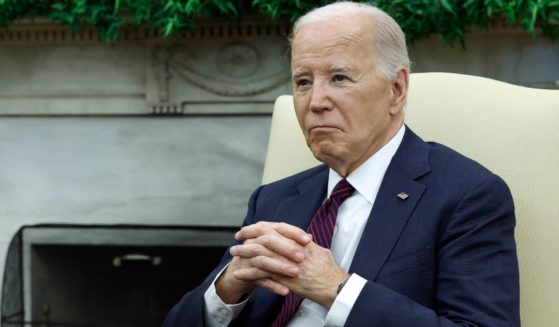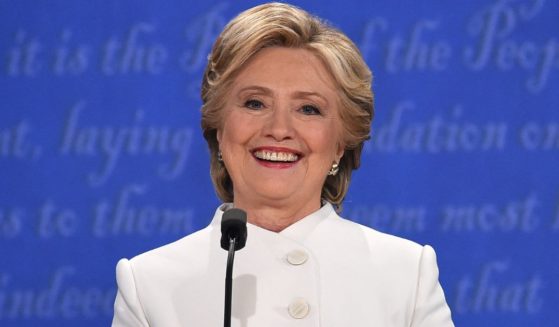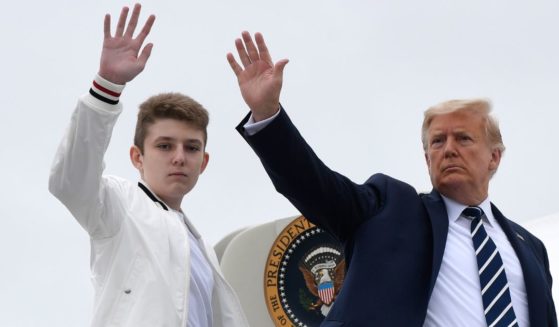After Enacting Tough Penalties Against China, Trump Deploys US Military to Deliver Brutal Message
On Thursday, the Trump administration hit the Chinese with $60 billion in trade penalties for intellectual property theft.
Hours later, Trump sent Beijing a message of a different sort — sailing a destroyer near one of artificial islands created by China in the South China Sea in an attempt to expand its geographic purview.
According to Reuters, the destroyer USS Mustin sailed within 12 nautical miles — the internationally-recognized territorial limit — of Mischief Reef in the Spratly Islands on Friday, according to Reuters.
The destroyer then conducted “maneuvering operations” off the manufactured islands.
The move was part of what are known as “freedom of navigation” operations, or FONOPS, which essentially send a territorial message to nations engaged in maritime irredentism.
“We conduct routine and regular freedom of navigation operations, as we have done in the past and will continue to do in the future,” said Lieutenant Commander Nicole Schwegman, spokeswoman for U.S. Pacific Fleet, when asked about the actions.
According to the South China Morning Post, Chinese officials called it a “serious military provocation” and claimed the destroyer had been “warned off” by two Chinese frigates.
“What the U.S. is doing will damage the military-to-military relations and atmosphere,” Chinese defense ministry spokesman Ren Guoqiang said.
Also damaging the atmosphere: $60 billion in trade penalties levied against China for intellectual property violations by the Trump administration just hours prior.
“We have a tremendous intellectual property theft situation going on,” President Trump said as he announced the penalties, The Daily Caller reported.
Last summer, U.S Trade Representative Robert Lighthizer began an investigation into whether China was violating Section 301 of the Trade Act of 1974 through policies “related to technology transfer, intellectual property, and innovation are unreasonable or discriminatory and burden or restrict U.S. commerce.”
On Wednesday, testifying before Congress about trade policy, Lighthizer seemed to indicate the administration was leaning in the direction of imposing tariffs upon China as part of the administration’s penalties for this property theft.
“Our view is we have a very serious problem of losing our intellectual property. We are losing to China in ways not reflected in underlying economics,” Lighthizer said.
China is generally considered to be the main offender when it comes to American intellectual property theft, which can cost us to $600 billion a year, according to Commerce Secretary Wilbur Ross.
White House Trade Adviser Peter Navarro added Thursday that talks had failed to produce any sort of meaningful results. In addition to tariffs, the administration is also looking into blocking certain investments as part of the penalties.
A statement from the Chinese Ministry of Commerce on Thursday said that Beijing “has expressed its position on many occasions that we resolutely oppose this type of unilateral and protectionist action by the U.S. China will not sit idly by while legitimate rights and interests are hurt.
“We must take all necessary measures to firmly defend our rights and interests.”
Whether or not that resonates with the Trump administration is anyone’s guess, although Friday’s actions in the South China Sea might provide a pretty big hint.
Truth and Accuracy
We are committed to truth and accuracy in all of our journalism. Read our editorial standards.












